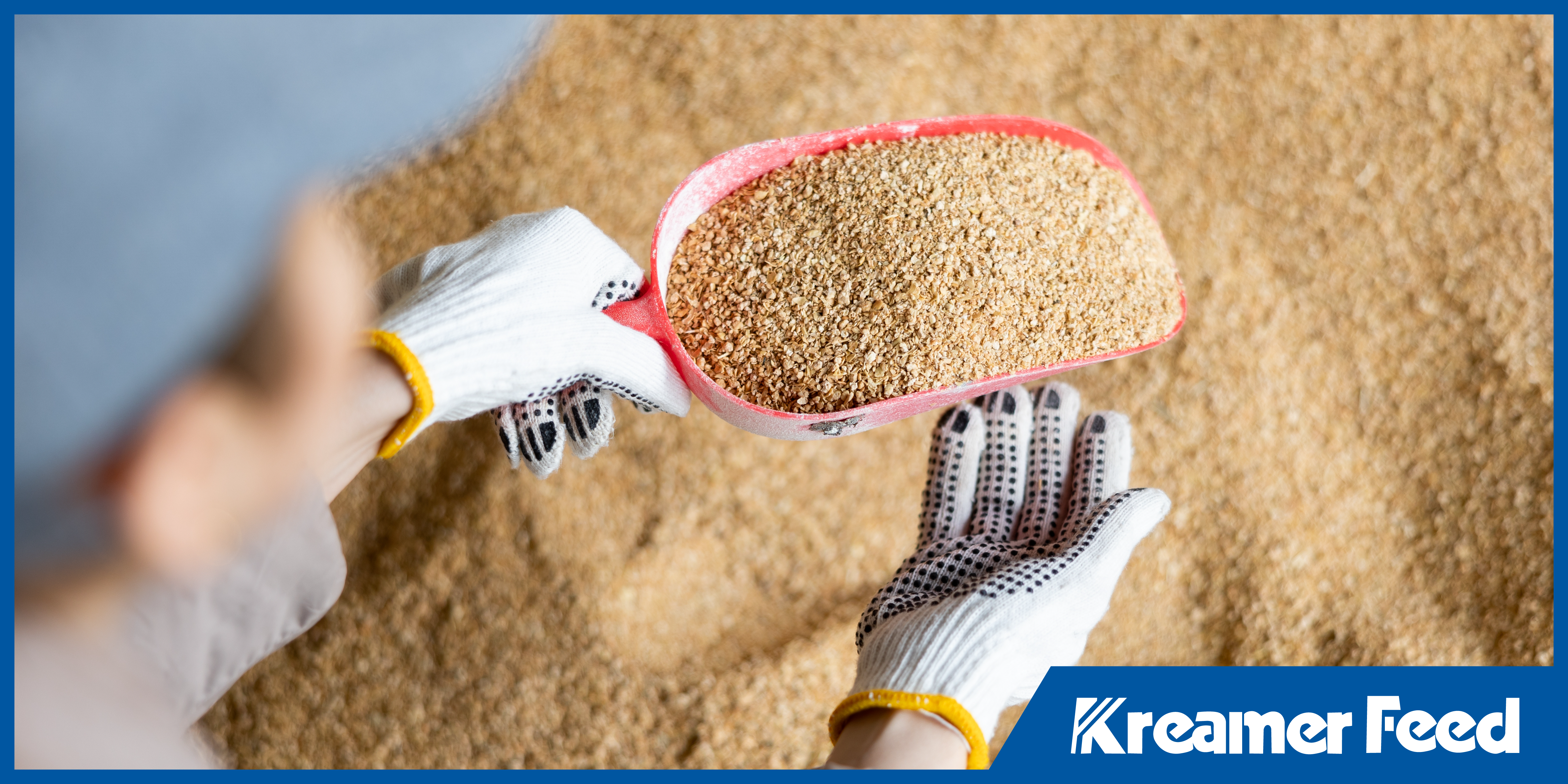
Farmers know that high-quality animal feed is one of the most significant investments in any livestock operation. But even the best feed won’t deliver full value if it isn’t managed properly. Whether you’re raising a backyard flock or managing a large-scale livestock farm, finding ways to maximize farm feed value is essential for both economic sustainability and animal health.
Fortunately, improving farm feed efficiency doesn’t always require big changes. It starts with small, intentional practices that can dramatically reduce feed waste on the farm and improve your bottom line.
1. Store Feed Correctly to Prevent Spoilage
The first step in protecting feed value is ensuring it’s stored properly. Feed that’s exposed to moisture, heat, or pests can quickly lose its nutritional quality or become unusable altogether.
According to the Food and Agriculture Organization (FAO), environmental factors such as moisture, temperature (heat), light, and oxygen significantly influence quality deterioration in stored feed, either directly or by encouraging mold and insect development.
Tips to minimize livestock feed loss from storage issues:
- Store feed in airtight, rodent-proof containers.
- Keep bags off the ground and away from walls to improve airflow.
- Label new bags with the delivery date and rotate stock using FIFO (First In, First Out).
- Avoid storing feed in direct sunlight or humid areas.
Proper feed storage ensures you’re not paying for feed that ends up in the trash or causes health problems for your animals.
2. Measure and Monitor Feed Usage
Accurate feed measurement plays a huge role in farm feed management. Overfeeding leads to waste and added cost, while underfeeding can result in poor animal performance and health issues.
Efficiency tips:
- Use scales or pre-measured scoops to ensure consistent feeding.
- Track feed use per animal or group using simple logs or digital tools.
- Adjust feed amounts based on animal growth stages, weather, or production goals.
This practice helps you stay in control of both your feed budget and animal nutrition.
3. Adjust Feeding Methods for Each Species
Different animals have different feeding behaviors. Some are more prone to wasting feed by trampling, rooting, or selective eating.
To minimize livestock feed loss based on behavior:
- Use species-specific feeders or troughs that prevent spillage.
- Elevate feeders to prevent contamination from dirt or manure.
- Avoid overfilling. Animals often scatter excess feed while eating.
These adjustments reduce waste and help animals get the full nutritional benefit from every scoop.
4. Invest in the Right Feed Type and Form
Selecting the right feed for your animals not only improves health outcomes, it can also boost feeding efficiency.
Tips to maximize feed value through feed selection:
- Choose feeds that match your animals’ life stage and species.
- Consider pelleted feeds if animals tend to sort through mash or crumble.
- Use complete feed formulations to eliminate the need for additional supplements that might go unused.
Matching feed type to your operation ensures you’re not overpaying for unnecessary ingredients or losing money to uneaten leftovers.
5. Implement a Consistent Feeding Schedule
Animals thrive on routine. Irregular feeding can lead to overeating or uneaten feed sitting out and spoiling.
To reduce waste:
- Feed at the same times each day, ideally in the early morning or late afternoon.
- Monitor how quickly animals eat and adjust portions accordingly.
- Clean feeders regularly to prevent buildup and contamination.
Routine supports better animal behavior and ensures fresh feed is always available when needed.
6. Evaluate Feed Efficiency Regularly
Sustainable farm feeding means tracking what works and adjusting what doesn’t. A regular review of your feed program helps identify areas where waste can be reduced or where changes might improve overall efficiency.
Ask yourself:
- Are you throwing out unused feed regularly?
- Are your animals maintaining healthy weights and production levels?
- Could improved feed storage or delivery save you time or money?
Gathering feedback from employees or farmhands can also surface practical changes you may not have noticed.
Feed Smarter, Waste Less
Improving how you manage and deliver feed can go a long way in reducing costs, improving animal performance, and making your operation more sustainable.
At Kreamer Feed, we’ve been supporting smart, efficient farming since 1947 with reliable feed solutions, expert guidance, and a commitment to helping you feed better every day. Whether you’re raising poultry or livestock, our team is here to help you get the most from every pound of feed. Ready to feed smarter? Let’s talk.